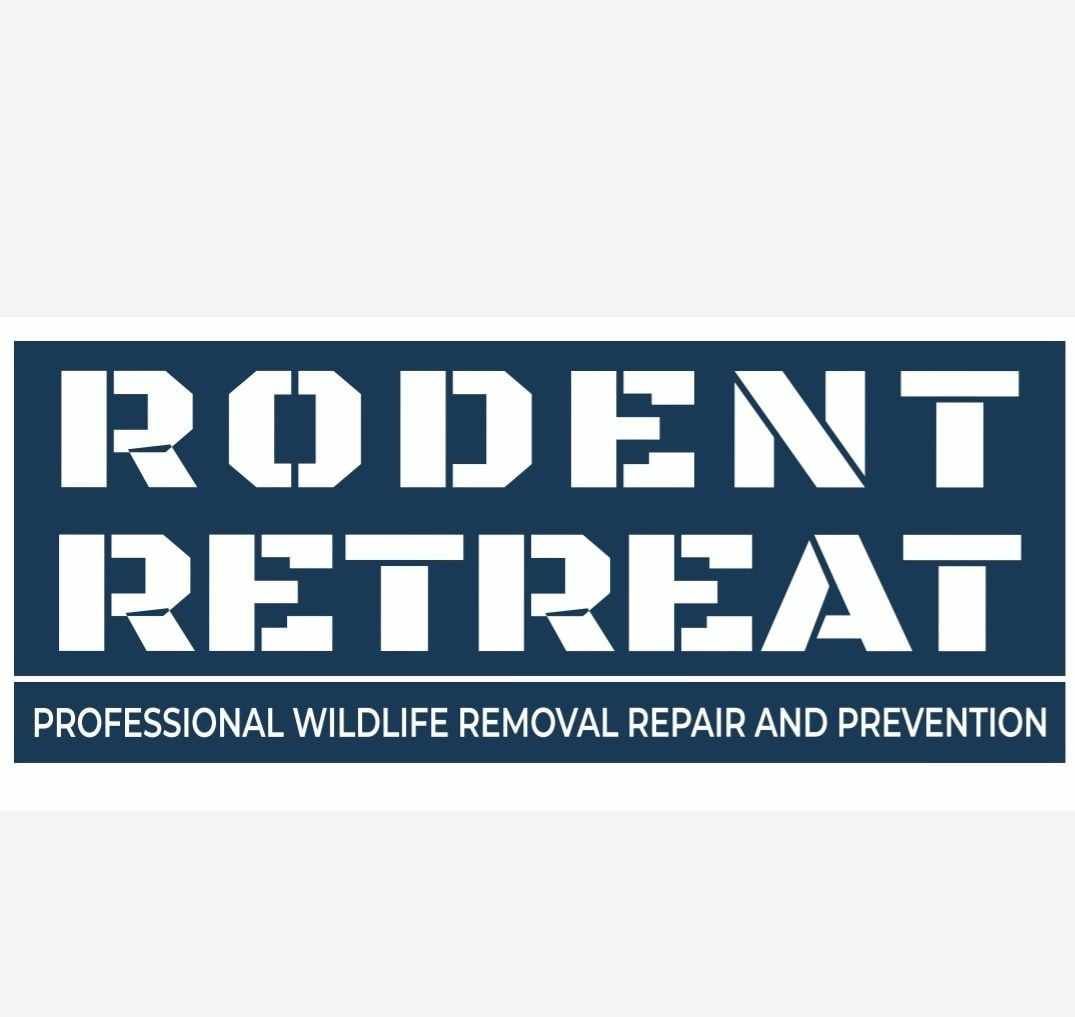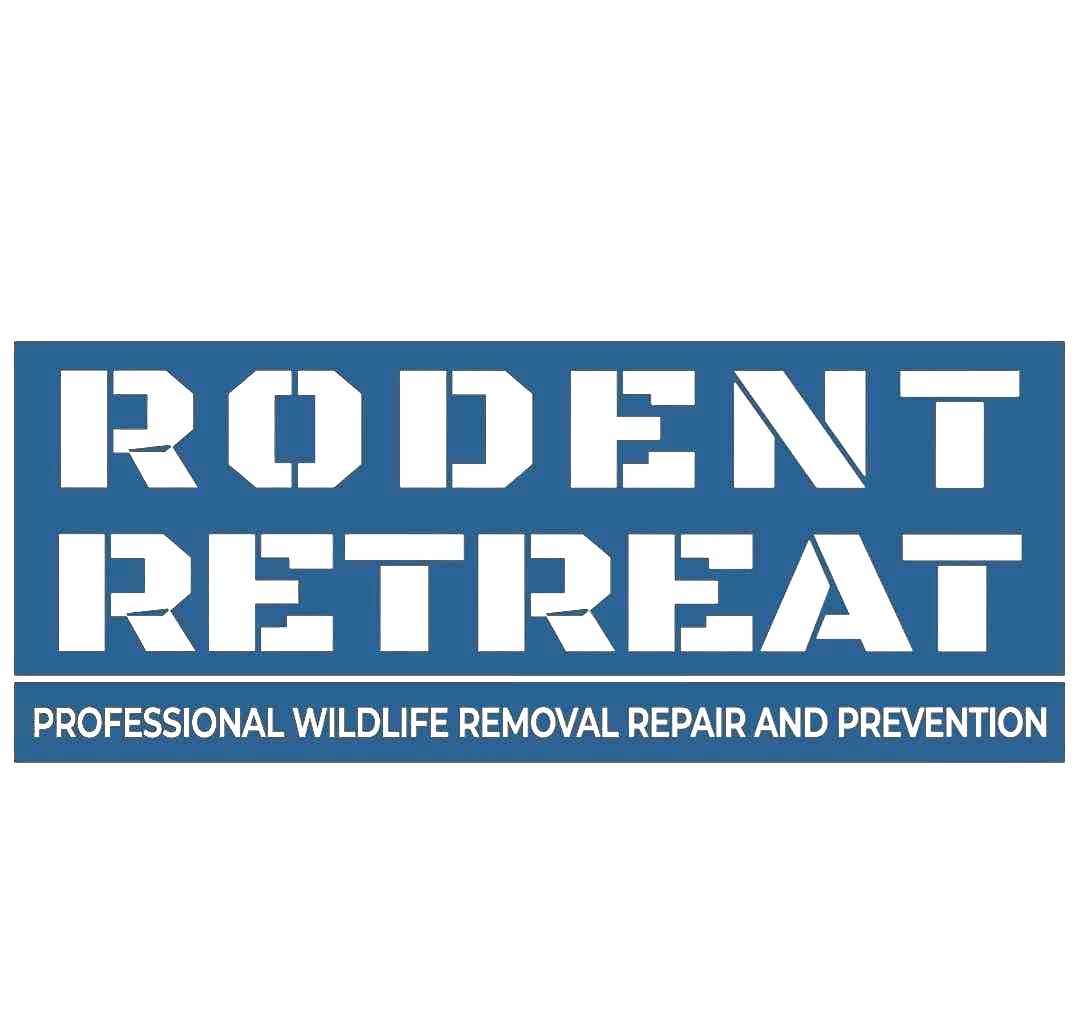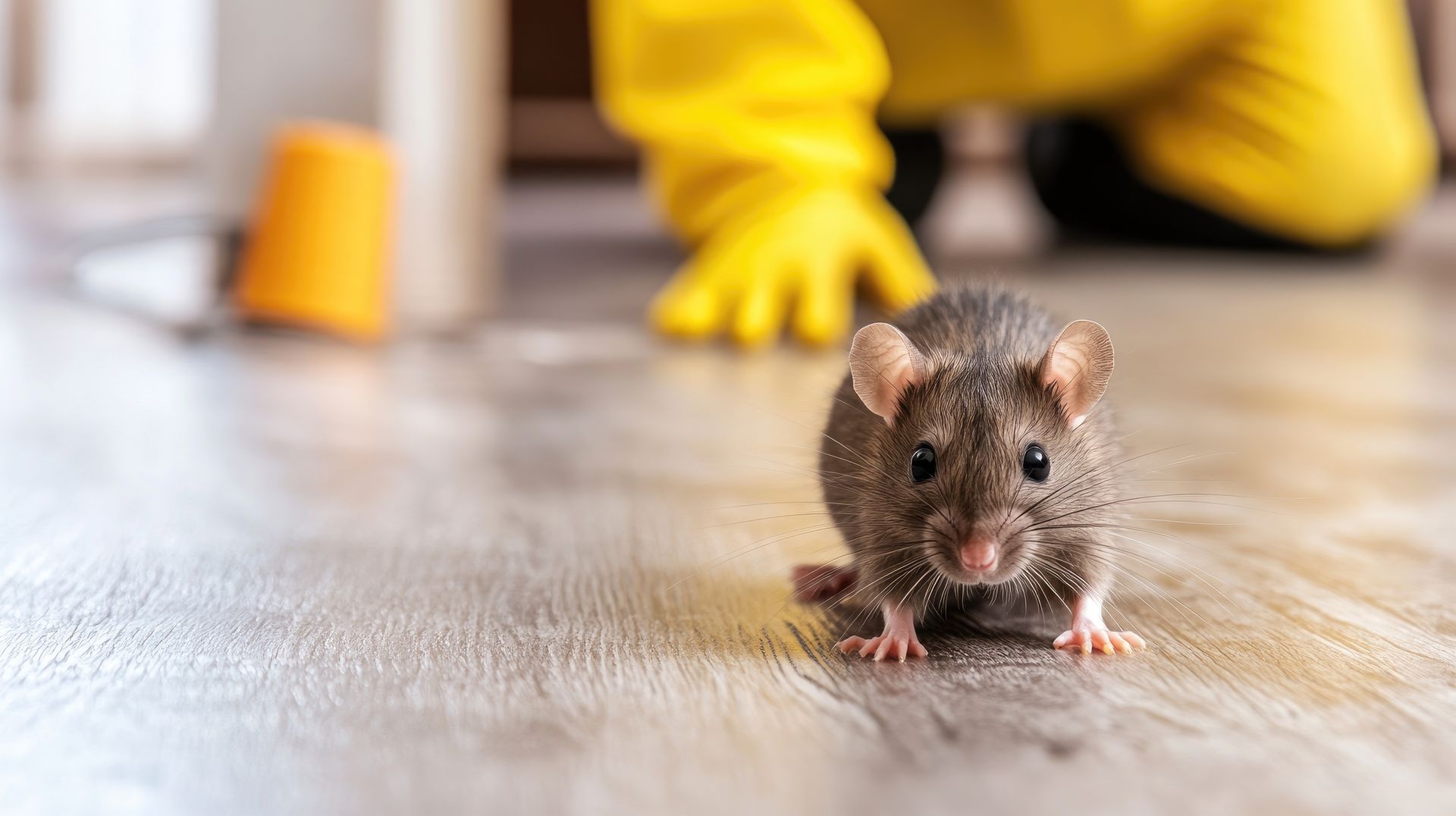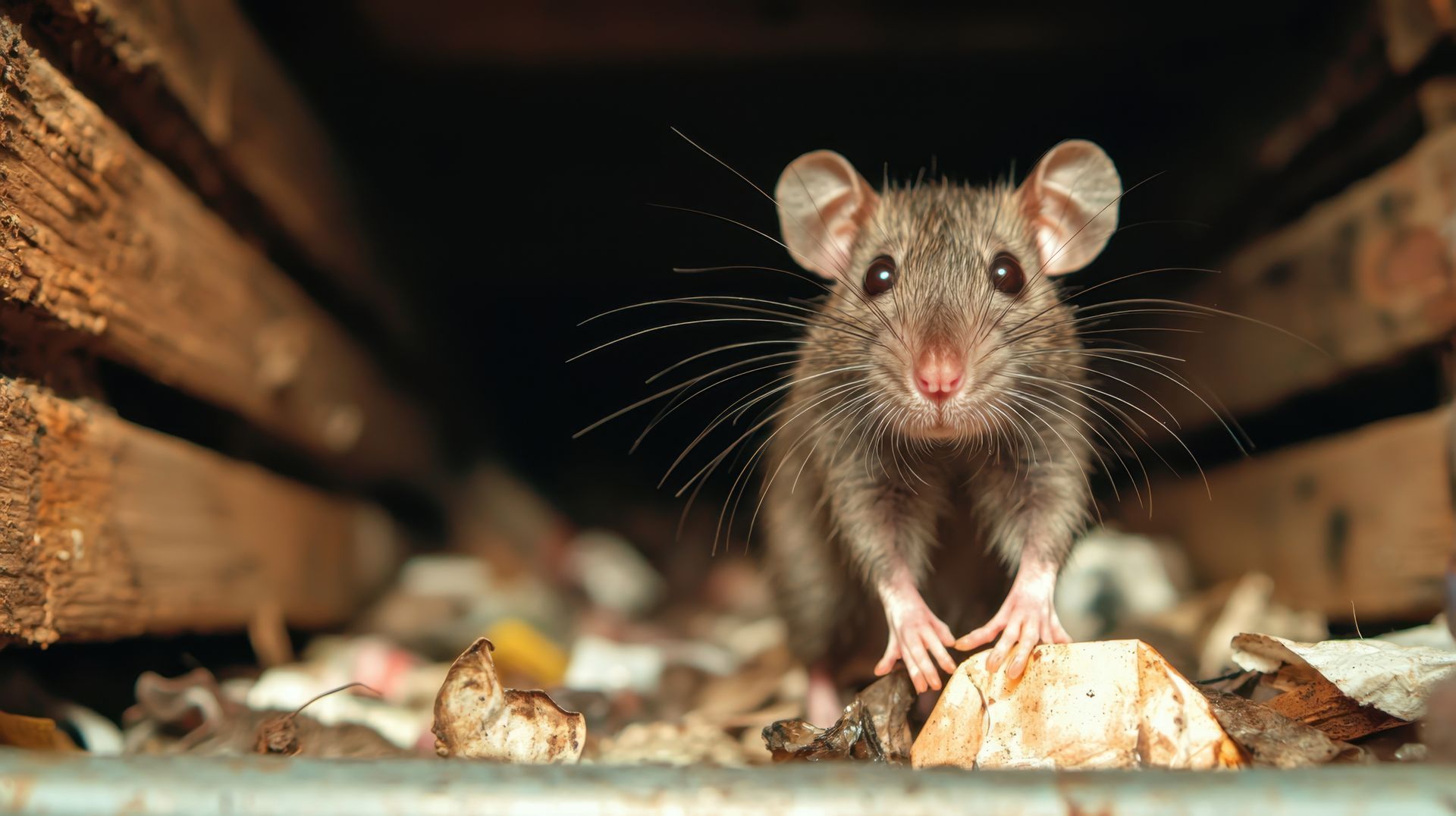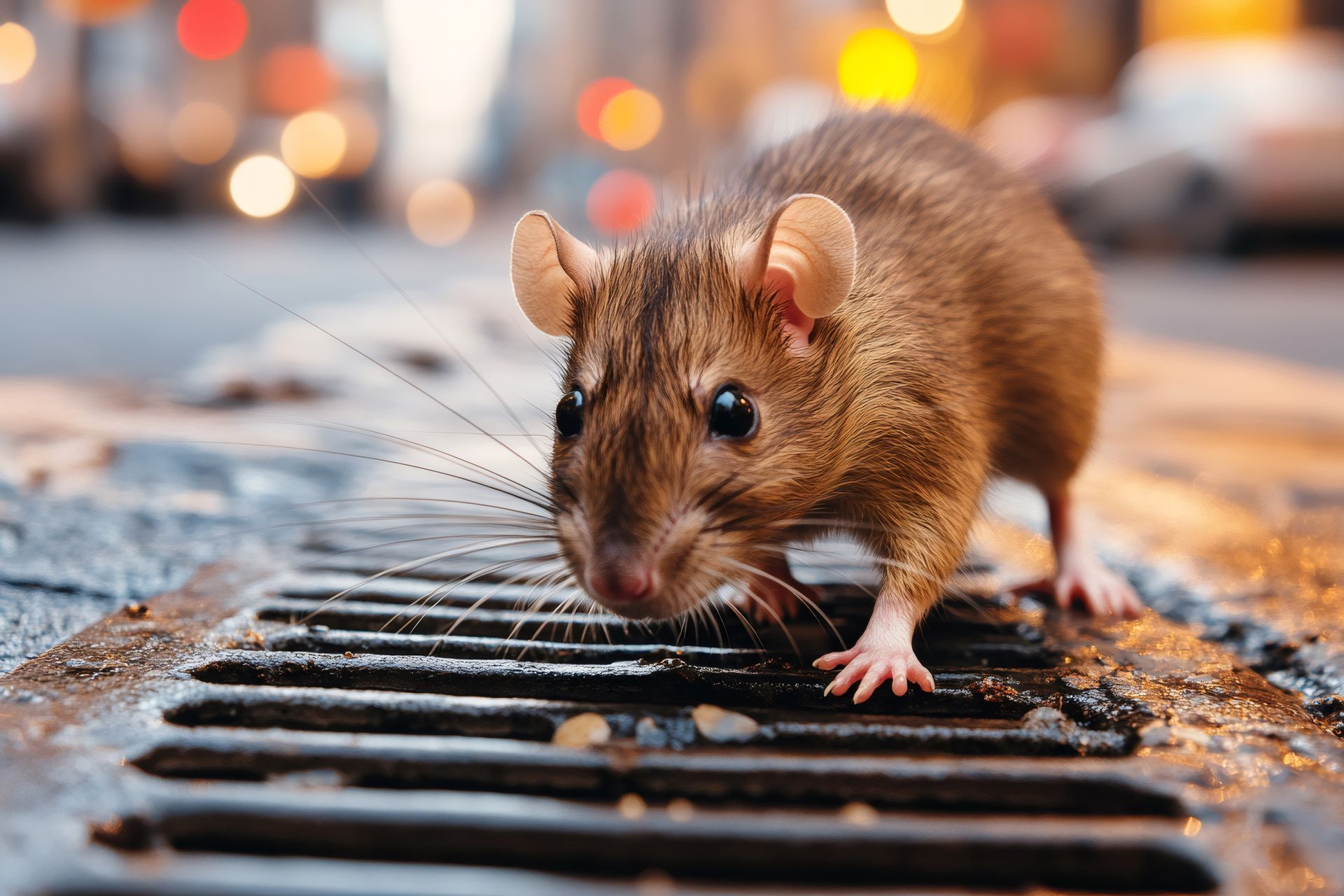
Welcome to our blog on rapid rodent removal in Texas! Dealing with rodent infestations can be a challenging task, but with rodent removal Texas you can effectively control and remove these unwanted guests from your property. In this blog, we will provide expert tips and insights to help you understand rodents, recognize signs of infestation, and implement effective removal and prevention methods. Whether you're a homeowner in Dallas, Houston, Austin, or any other urban area in Texas, this blog is a must-read to ensure a rodent-free living environment. So, let's dive in!
Understanding Rodents in Texas
Rodents are a common nuisance in Texas, particularly in urban areas where they often seek shelter and food in residential properties. Texas residents may encounter a variety of rodent species, including roof rats, Norway rats, squirrels, opossums, and more. These pests can invade your attic, crawl spaces, and even your walls, causing damage to your property and posing health risks. Understanding these rodents' behavior, habits, and the importance of wildlife removal specialists is crucial in effectively dealing with rodent infestations.
Common Types of Rodents Encountered
Roof rats and Norway rats are two of the most common rodent species encountered in Texas homes. Roof rats, also known as black rats, are agile climbers and prefer nesting in attics, trees, and overgrown vegetation. Norway rats, on the other hand, are burrowers and tend to build nests in basements, crawl spaces, and wall voids. Other rodent species found in Texas include squirrels and opossums. Squirrels can cause damage by gnawing on electrical wires, insulation, and structural components of your home, while opossums are known to invade attics and crawl spaces. Each rodent species requires a tailored approach for effective removal, which is why it's important to seek the expertise of local wildlife removal specialists.
Rodent Behavior and Habits
Understanding rodent behavior and habits is essential in implementing effective control strategies. Rodents, such as rats and squirrels, are primarily nocturnal, meaning they are most active during the night. These pests seek shelter in warm, secluded areas, making your attic space an attractive nesting site. They have a natural instinct to continuously chew on objects to control the growth of their teeth, which can lead to structural damage and potential fire hazards in your home. Rodents are excellent climbers and can access your property through small openings, including gaps in rooflines, vents, and windows. By familiarizing yourself with rodent behavior, you can implement targeted exclusion methods to prevent infestations and protect your home.
Why Are Rodents a Problem?
Rodent infestations pose serious problems for homeowners. Not only do they cause damage to your property, but they also create health risks for you and your family. Rodents carry diseases such as hantavirus and salmonella, which can be transmitted through their droppings, urine, and bites. The accumulation of rodent droppings and urine can lead to respiratory issues when airborne particles are inhaled. Additionally, rats and other rodents can damage electrical wiring, insulation, and structural components of your home, leading to costly repairs. Prompt rodent removal and effective pest management are crucial in avoiding these health risks and property damage.
Health Risks Posed by Rodents
Rodents can pose significant health risks to humans. One of the most well-known diseases transmitted by rodents is hantavirus, which can lead to a severe respiratory illness called hantavirus pulmonary syndrome (HPS). Other diseases, such as salmonella and rat-bite fever, can also be contracted from exposure to rodent droppings, urine, or direct contact with the pests. Additionally, rodent bites and scratches can lead to infections, including rabies, a potentially fatal disease. To protect yourself and your family from these health risks, it is crucial to implement effective pest management strategies and remove rodents from your property in a safe and humane manner.
Property Damage Due to Rodents
In addition to health risks, rodents can cause significant damage to your property. They have a natural instinct to gnaw on objects, which can result in damage to electrical wiring, posing fire hazards. Rodents also damage insulation, leading to energy loss, increased heating, and cooling costs. Furthermore, their burrowing and nest-building behavior can weaken the structural integrity of your home, causing serious damage over time. It is essential to take immediate action upon detecting a rodent infestation to prevent extensive property damage. Seeking expert rodent removal services can help mitigate the risks and ensure effective removal of these pests from your property.
Recognizing Signs of a Rodent Infestation
Recognizing the early signs of a rodent infestation is crucial for effective pest control. Various physical signs indicate the presence of rodents, such as droppings, gnaw marks, and damaged goods. Additionally, sounds and smells can also provide clues of rodent activity, including scratching sounds, musky odors, and nest sightings. Being attentive to these signs allows you to take prompt action and prevent a full-blown infestation. By familiarizing yourself with these indicators, you can proactively protect your home from rodent infestations and avoid the potential health risks and property damage they bring.
Physical Signs of Presence
- Rodent droppings: Finding droppings in areas such as kitchen cabinets, drawers, or near food sources is a clear indication of a rodent infestation.
- Gnaw marks: Look for gnaw marks on food packaging, wooden structures, or electrical wiring, as rodents constantly chew to control the growth of their teeth.
- Damaged goods: If you notice chewed holes or damage to cardboard boxes, furniture, insulation, or other household items, it is likely due to rodent activity.
- Footprints and tail marks: Dusty areas or surfaces may reveal footprints or tail marks, signaling rodent movement.
- Nests: Discovering nests made of shredded materials, such as paper, fabric, or insulation, suggests a rodent infestation in your home.
Sounds and Smells Indicating Rodent Activity
Being able to recognize sounds and smells associated with rodent activity can help you identify a rodent infestation in your home. Scratching or scampering sounds in your walls, ceilings, or attic space are common indications of rodent movement. Rodents emit musky odors that become noticeable in enclosed areas, where they nest and leave their droppings. Additionally, the presence of nests made of shredded materials, such as paper or insulation, is another clear sign of rodent activity. If you encounter these sounds or smells, it's important to take swift action and implement effective rodent removal strategies to prevent further infestation and damage.
Expert Tips for Rodent Prevention
Preventing rodent infestations is crucial to maintaining a pest-free home. By following expert tips and implementing effective exclusion methods, you can minimize the risk of rodent problems. Regular home maintenance, proper repairs, and sealing possible entry points are essential steps to prevent rodent intrusion. Safe food storage, waste management practices, and a clutter-free environment also play a critical role in rodent prevention. By adopting these preventive measures, you can significantly reduce the attractiveness of your home to rodents and ensure a rodent-free living space for you and your family.
Home Maintenance and Repairs for Prevention
- Regularly inspect your home for possible entry points, such as gaps in the roofline, vents, and windows, and seal them to prevent rodent intrusion.
- Maintain gutters and downspouts to prevent water build-up, which can attract rodents seeking shelter.
- Conduct necessary home repairs, such as fixing loose siding, damaged screens, or cracks in foundation walls, to eliminate potential rodent entry points.
- Avoid leaving food or trash exposed, both inside and outside your home, as these can attract rodents.
- Keep your living space organized and clutter-free to reduce hiding spots for rodents and make regular inspections easier.
Safe Food Storage and Waste Management
Proper food storage and waste management are essential in preventing rodent infestations. Keep your food stored in airtight containers, preventing rodents from accessing it. Additionally, make sure trash cans are tightly sealed to avoid attracting pests. Properly dispose of food waste in sealed bins and clean up spills and crumbs immediately. Regularly empty and clean areas where food waste is stored, such as kitchen compost bins or outdoor trash cans. By implementing safe food storage and waste management practices, you can eliminate potential food sources for rodents, reducing the likelihood of infestation.
Rapid Rodent Removal Techniques
Once a rodent infestation is detected, rapid removal becomes a top priority. Several techniques can be employed to remove rodents effectively from your property. DIY rodent traps, such as snap traps, glue boards, and electronic traps, can be used to catch and remove rodents. However, it is important to regularly check and reset traps for effectiveness. In cases where infestations are severe or persistent, rodenticides may be necessary. However, the use of harmful chemicals should be approached with caution and adhere to safety measures. When dealing with rodent removal, always consider the safest manner and, if needed, seek professional assistance to ensure effective and humane removal methods.
DIY Rodent Traps and Their Efficacy
DIY rodent traps can be effective in catching and removing rats and other rodents from your property. Different types of traps are available, including snap traps, glue boards, and electronic traps. Here are a few points to consider:
- Snap traps: These traditional traps are effective in quickly and humanely catching rodents. Place them along walls or near rodent activity signs, such as droppings or gnaw marks. Remember to use caution when setting and handling snap traps to prevent injury.
- Glue boards: Glue boards are adhesive surfaces that trap rodents when they step on them. Place them in areas of rodent activity, such as along travel paths or near entry points. Check the boards regularly and dispose of them, along with the trapped rodents, to ensure effectiveness.
- Electronic traps: These traps use electrical shocks or high-voltage plates to kill rodents quickly and humanely. They are easy to use and can be effective in minimizing rodent populations.
- It's important to note that the efficacy of DIY traps may vary, and professional rodent removal services may be needed for severe infestations or persistent rodent problems.
When to Use Rodenticides and Safety Measures
Rodenticides, or rodent poison, can be effective when used correctly and as a last resort for rodent control. Here are some important points to consider:
- Use rodenticides only when other methods, such as traps, have proven ineffective in controlling rodent populations.
- Follow all safety instructions provided with the rodenticides, including proper placement, dosage, and precautions.
- Keep rodenticides out of reach of children and pets to prevent accidental ingestion.
- Monitor bait stations regularly to check for rodent activity and replace poisoned bait as necessary.
- Properly dispose of rodent carcasses to avoid secondary poisoning risks to other wildlife or pets.
- When using rodenticides, it's essential to prioritize safety and use them as a targeted and controlled method of rodent control.
Hiring A Professional Rodent Exterminator
In some cases, hiring a professional rodent exterminator may be the most effective solution for a rodent infestation. Professional exterminators have the knowledge, experience, and tools to effectively remove rodents from your property. When selecting a professional service, consider the following:
- Look for licensed and insured pest control companies that specialize in rodent removal.
- Check online reviews and ratings to assess the service provider's reputation and customer satisfaction.
- Inquire about the methods and products used for removal, ensuring they follow safe and humane practices.
- Consider scheduling a consultation to assess the extent of the infestation and receive a customized removal plan.
- Compare pricing and services before making a decision, ensuring you receive the best value for your investment.
- Professional rodent exterminators provide effective removal services, prioritize customer service, and use exclusion methods to prevent future infestations.
Evaluating Rodent Removal Services
When evaluating rodent removal services, it's important to conduct thorough research to ensure you choose a reputable and reliable service provider. Here are a few points to consider:
- Look for removal specialists who have experience in dealing with rodent infestations.
- Read online reviews and ratings, such as those on Yelp, to gauge the customer satisfaction and effectiveness of a service provider.
- Consider contacting a few removal services to schedule a consultation, during which they can assess the extent of the infestation and provide a customized removal plan.
- Ask for a detailed explanation of the methods and products they use, ensuring they align with your preferences for safe and humane removal.
- By evaluating the removal service providers, you can make an informed decision based on their expertise, customer reviews, and consultation process.
What to Expect from A Professional Service
When hiring a professional rodent removal service, you can expect a comprehensive approach to address your infestation problem. Here is what you can typically expect:
- Thorough property inspection: A professional service will conduct a thorough inspection of your property to assess the extent of the infestation, identify entry points, and understand the rodent behavior.
- Customized removal plan: Based on their findings, they will create a customized removal plan that suits your specific needs, considering the severity of the infestation and your preferences.
- Transparent communication: During the removal process, a professional service will maintain transparent communication, keeping you well-informed about the methods, products, and progress of the removal.
- Follow-up visits: Professional services often provide follow-up visits to monitor the success of the removal and ensure long-term exclusion measures are effective.
- Customer satisfaction: They prioritize customer satisfaction, ensuring a professional and effective removal service while minimizing harm to animals and providing a pest-free environment.
- By choosing a professional service, you can expect a comprehensive and effective removal plan, excellent customer service, and long-term exclusion methods to prevent future infestations.
Post-Removal: Ensuring Rodents Stay Away
After successfully removing rodents from your property, it's crucial to implement measures to ensure they stay away. Here are a few post-removal tips for effective pest management and prevention:
- Regular inspections: Regularly inspect your home for signs of rodent activity, paying particular attention to problem areas such as attics, basements, and crawl spaces.
- Maintenance: Conduct seasonal maintenance to reinforce rodent-proofing measures, such as sealing entry points, repairing damaged screens, and trimming tree branches away from your house.
- Seek professional advice: If you are unsure about ongoing prevention strategies, consider seeking professional advice from a pest control expert who can provide guidance tailored to your specific situation.
- Maintain a clean environment: Keep your living space clean and organized, minimizing hiding spots and reducing potential food sources for rodents.
- Implement effective landscaping practices: Choose landscaping options that deter rodent habitation, such as clearing debris, removing potential hiding spots, and minimizing water sources.
- By implementing these measures, you can help ensure long-term rodent control and maintain a rodent-free environment.
Regular Inspections and Maintenance
Regular inspections and proactive maintenance are essential in preventing rodent infestations. Here's why:
- Conduct regular inspections of your property, focusing on problem areas where rodents are likely to hide or enter, such as attics, basements, and crawl spaces.
- Look for signs of rodent activity, including droppings, chew marks, and nests, during your inspections.
- Promptly address any evidence of rodent activity, such as sealing entry points and taking necessary precautions to prevent infestations.
- Maintain a schedule for seasonal maintenance, reinforcing rodent-proofing measures, such as repairing damaged screens, sealing gaps, and trimming vegetation near your property.
- Regular inspections and proactive maintenance help detect and resolve rodent issues before they escalate, allowing for effective and timely intervention.
How often should you inspect your home for rodent activity?
Performing regular inspections of your home is essential in detecting rodent activity and preventing infestations. Here are some tips on how often you should inspect your home:
- It is recommended to inspect your home for rodent activity at least once every few months.
- Keep an eye out for signs of rodent presence, such as droppings, chew marks, and nests, during these inspections.
- Pay particular attention to problem areas, including attics, basements, and crawl spaces, where rodents are likely to seek shelter.
- Conducting attic checks, in particular, should be a priority as rodents often nest in these areas and use them as entry points into your home.
- As a homeowner, being vigilant and conducting regular inspections helps identify rodent activity early on, enabling you to take prompt action and prevent infestations.
Frequently Asked Questions
What kills rodents fast?
Effective rodent removal methods include snap traps for quick elimination, rodenticides to swiftly poison rodents, ultrasonic repellers emitting unpleasant sound waves, and professional exterminators offering fast solutions.
In conclusion, understanding the behaviors and risks associated with rodents is crucial for effective prevention and removal. Maintaining a proactive approach to rodent control through expert tips, such as home repairs, proper food storage, and regular inspections, can help safeguard your property and health. Whether opting for DIY methods or seeking professional extermination services, prompt action is key to managing rodent infestations. By staying vigilant and implementing preventive measures, you can ensure a rodent-free environment and peace of mind in your Texas home.
